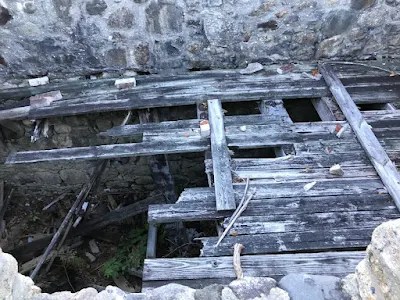One of the more unknown and forgotten battles of the American Revolution occurred in Castine Main
Fort George was built in 1779 by the British during the American Revolutionary War in Castine, Maine built on high ground over looking Panobscot bay on the Bagaduce Peninsula. It was the site of the Massachusetts Penobscot Expedition, a disastrous attempt in July and August of 1779 to retake Castine. The British re-occupied Castine in the War of 1812 from September 1814 to April 1815, rebuilding it and establishing smaller forts around it. They withdrew after the war and following a brief period of American use, the fort was abandoned and demolished in 1819.
Fort George is a square earthwork, about 200 feet on each side. There are four bastions at the corners. Parts of the fort that have not survived includethe palisade, moat, and gateway. The fort is one of a series of defenses erected by the British in 1779, which included the digging of a canal across much of the neck separating the Bagaduce Peninsula from the rest of the mainland.
The site of the fort's remains is now a park of 7 acres owned by the state and maintained by the town. Within the fort is a baseball diamond and a soccer field. The few stone structures within it are crumbling to ruin.
The Fort is the location for Bernard Cornwell's 2010 book " The Fort",about the Penobscot Expedition. For more details of the siege and fiasco:
https://en.m.wikipedia.org/wiki/Penobscot_Expedition










Brilliant! I had the book ‘Solomon Lovell and the Penobscot Expedition’: certainly a fiasco, but it always struck me as a good mini campaign.
ReplyDeleteAgree it would make a excellent campaign game.
DeleteAs I was reading your post, I was thinking I've read about this before. Then, of course you mentioned The Fort, the Cornwall novel.
ReplyDeleteLOL - ditto Ray - I read the intro and thought "I wonder if that's the place the Bernard Cornwall book was about" and of course, so it proved to be!
ReplyDeleteYou are both right. Although there are a number if small studies I think the whole thing would have been forgotten if not for that book.
ReplyDelete